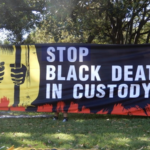Federal Government’s New Watchdog: A Further Threat to Civil Liberties

Trade unions and civil liberties groups have raised concern over a recent proposal to restore power to the Australian Building and Construction Commission (ABCC). The Commission previously faced criticism for the “coercive power” it was able to exercise over union members and officials.
Writing on the ABCC, Professor George Williams and Nicola McGarrity warned the Commissioner’s powers “have the potential to severely restrict basic democratic rights such as freedom of speech, freedom of association, the privilege against self-incrimination and the right to silence”.
The ABCC was first set up in 2005, as part of the Howard Government’s industrial reform package. Its purpose was to monitor the construction sector, and enforce civil workplace laws such as restrictions on unlawful industrial action and industrial threats.
However, the commissioner was given a number of powers not held by other industry regulators, including the right to compel people to attend interviews and remove the right to silence. Failure to comply was punishable by time in prison.
Opposition to these powers led to an overhaul of the Commission in 2012, and although they weren’t removed, the Government installed a series of safeguards to protect against their abuse.
So What Will the Changes Mean?
Currently, a presidential member of the Administrative Appeals Tribunal has to authorise the use of a coercive notice before it is executed, and must be satisfied that other avenues have failed. However, under the proposed changes, notices will be authorised at the commission’s will and as a first resort.
Under a revived ABCC, the construction industry would also face much higher penalties for breaches of industrial law than those for the wider workforce. The CFMEU, the union representing construction industry workers, says the proposition that one industry should be singled out for tougher penalties contravenes the fundamental principle of equality before the law.
Unions also fear the new powers will make it harder for union and OH&S representatives to act upon workplace safety issues – noting that construction site deaths hit a 10-year high under the Howard-era ABCC.
Construction Worker Threatened with Imprisonment
In 2010, South Australian construction worker, Ark Tribe, became the face of opposition to the ABCC. Two years earlier, Mr Tribe attended an onsite safety meeting at Flinders University, in Adelaide. The workers at the meeting discussed their safety concerns at the site, and carried out an investigation into conditions before resuming work.
The ABCC then summoned Tribe to a meeting to determine the legality of their actions. When he refused to obey, prosecutors for the ABCC commenced legal proceedings against him, threatening him with six months in prison.
“I was never gonna dob on my mates. It’s not fair, it’s not right, and I’d never do it,” Mr. Tribe said when asked why he refused to go before the Commission.
“With its coercive powers and ideological targeting of construction workers, the ABCC plays a political game rather than a useful or meaningful role in the industry,” said Dave Noonan, national secretary of the CFMEU construction division.
Time for a Federal Corruption Commission Instead?
With the ALP, Greens, and crossbench broadly against the bill, it is unlikely to become law – at least not in its current form. However, the Government has reached out to South Australian crossbench Senator Bob Day, asking him to get other crossbenchers to come up with a set of amendments that would let them vote as a bloc in favour of the legislation.
With the Government threatening to call a double dissolution election in July, if the bill does not pass, it’s likely the crossbenchers will be open to negotiation. Mr Day and others are keen to avoid a double dissolution, as voting reforms passed earlier this year mean they’re unlikely to win re-election.
Senator Dio Wang, a crossbencher from the Palmer United Party, has proposed amending the ABCC bill to create a national corruption body, similar to the New South Wales Independent Commission Against Corruption.
It is understood that the Wang amendment would broaden the legislation to create a federal corruption commission, that would have access to the same powers as the ABCC.
“Obviously the current situation with the building and construction industry is quite daunting given that the royal commission has made some serious findings,” Wang told Guardian Australia.
“But also there is corruption anywhere and everywhere so a national ICAC would be a really good authority to deal with it.”
He said the ABCC approach was too narrow and there is a need for a federal corruption body to focus not just on unions, but on commonwealth public officials, politicians and white-collar crime.
Senator Wang is not alone, with independent senator John Madigan also calling on the government to take a broader approach to corruption. A recent Research Now poll found that 65% of respondents supported the establishment of a national Independent Commission Against Corruption (ICAC) that could hold Federal Government agencies and public servants to account. Only 22% of respondents favoured an ICAC agency for the building industry only.
It is unclear whether the Government will support the proposed amendment. However it is clear, especially for those already concerned about Australia’s deteriorating civil liberties, that an ABCC which can exercise coercive powers without any accountability is a frightening prospect.
Receive all of our articles weekly
Author






